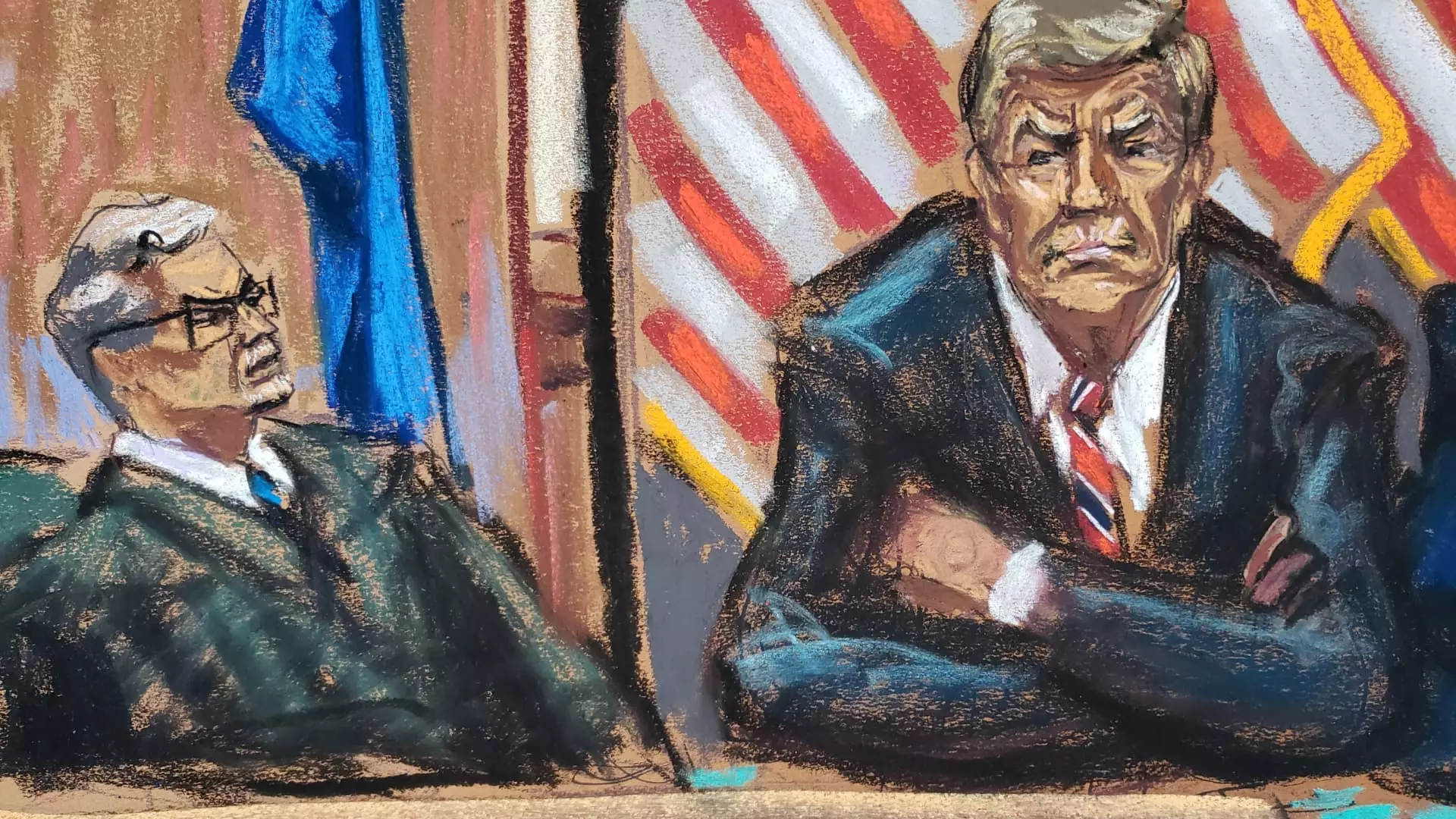A significant development unfolded in the ongoing legal saga surrounding President-elect Donald Trump as a New York judge opted to postpone a crucial ruling regarding the verdict in his criminal hush money case. Originally scheduled for a decision on a Tuesday, Manhattan Supreme Court Judge Juan Merchan announced a delay of one week, moving the date to November 19. This postponement comes on the heels of a request from the Manhattan district attorney’s office to reassess how Trump’s recent electoral victory impacts the proceedings. As the legal landscape shifts with political developments, the question of whether the court should dismiss the case or proceed towards sentencing looms large.
At the center of this controversy is a monetary arrangement made during the 2016 presidential campaign, involving a hush money payment orchestrated by Trump’s former attorney, Michael Cohen, to adult film actress Stormy Daniels. Trump faces 34 counts of falsifying business records in connection to this payment. Following the U.S. Supreme Court’s decision, which granted former presidents a degree of immunity regarding their official duties, Trump’s legal team renewed their efforts to dismiss the case. They argue that the prestigious ruling creates a legal precedent that should influence the outcome of the case against him. However, Manhattan District Attorney Alvin Bragg contends that the Supreme Court’s ruling does not diminish the validity of Trump’s conviction relating to the hush money allegations.
Election Influence on Legal Proceedings
The timing of these legal maneuvers is particularly notable, occurring just days after Trump emerged victorious over Vice President Kamala Harris in the 2024 presidential race. This victory has emboldened Trump’s legal representatives to argue for a cessation of all legal proceedings, focusing on the need to reflect on implications stemming from his electoral success. The DA’s office acknowledged the uniqueness of these circumstances, expressing agreement with the need for a careful examination of the unfolding situation. In a court filing, prosecutor Matthew Colangelo emphasized the importance of balancing the jury verdict’s integrity against the responsibilities and authority of the presidency.
Trump’s attorney, Emil Bove, underscored a pressing concern in a communication to both the judge and the DA’s office, arguing that any continuation of the case could impose unwarranted barriers to the president’s ability to govern. This assertion raises critical questions about the interplay between legal accountability and the operational demands of governing a nation. As the legal proceedings are paused, the implications of this case—not just for Trump personally but for the broader political landscape—grow increasingly significant.
The delayed ruling signifies more than just a postponement in legal terms; it reflects the evolving nature of accountability in high office and the delicate balance between law and political reality. As both the court and legal teams grapple with these unprecedented issues, the next steps taken will likely define the intersection of law, politics, and public perception in a way that could resonate for years to come.


Leave a Reply